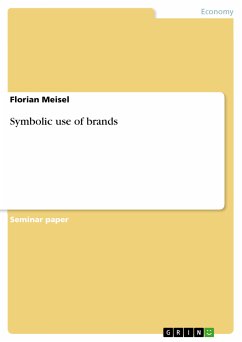Seminar paper from the year 2007 in the subject Business economics - Offline Marketing and Online Marketing, grade: 2, University of Vienna (Marketing ), course: Special Topics in Fashion and Brand Marketing, language: English, abstract: Increasingly, brands are seen as important in creating individual identity, a sense of achievement and individuality for consumers. It is clear that positioning a brand trough a clear and consistent image building campaign is a cornerstone of brand marketing. It is also evident that certain brand dimensions and associations lead to increased marketplace recognition and economic success for brand owners, as a result the value consumers place on them. Marketers spend millions of dollars each year to identify well defined, strong brand images and to support them. A company’s economic superiority is frequently implied by the strength of its brand name giving it the ability to differentiate itself and improve its competitiveness. (Nykiel, 1997) Park, Jaworski and MacInnis (1986) noted that consumer needs could be classified in functional or symbolic needs. The functional needs are related to specific and practical consumption problems, whereas symbolic needs are related to self image and social identification. (Subodh Bhat, 1998) Therefore they mentioned that all brand should have a “brand concept”, which is an overall abstract meaning that identifies a brand. Also, there are different types of motivations among each individual, and these motivations drives their needs either to be functional or symbolic in nature. Thus, functional needs of consumers could be exploited with a functional brand, one positioned with a functional brand concept. A brand could be also positioned as a “symbolic” brand for consumers who whish to enhance their self image or their social image. (Park, 1991)









